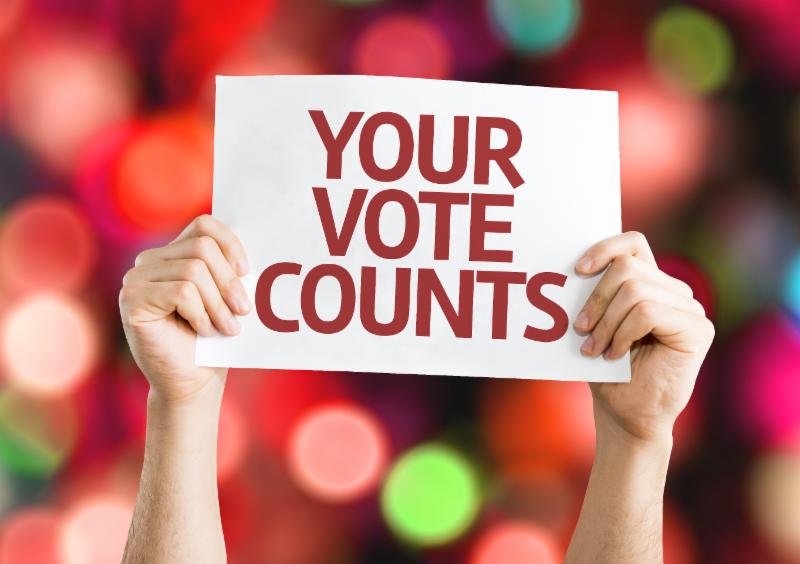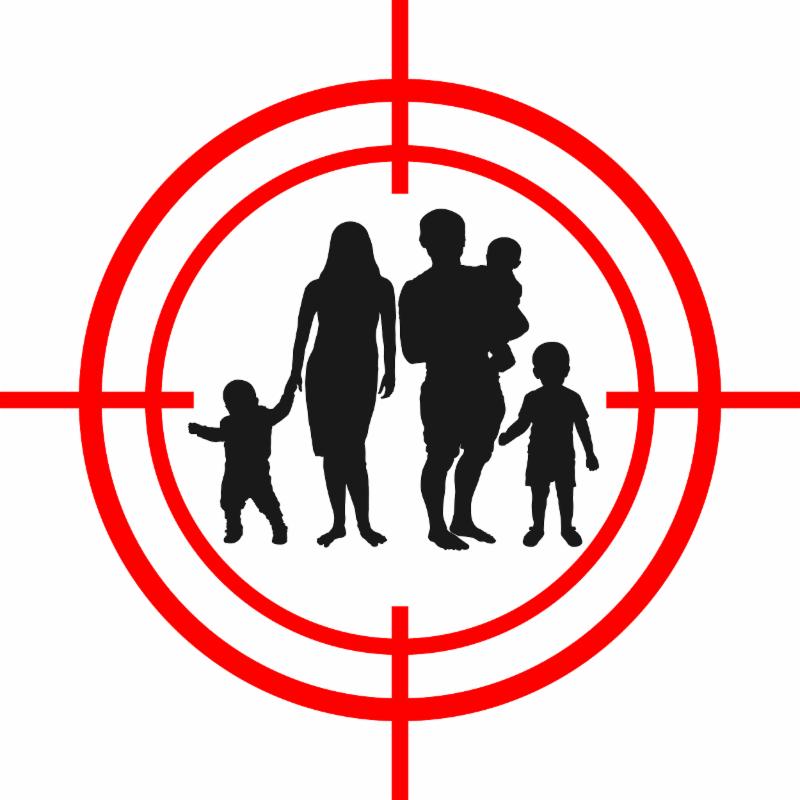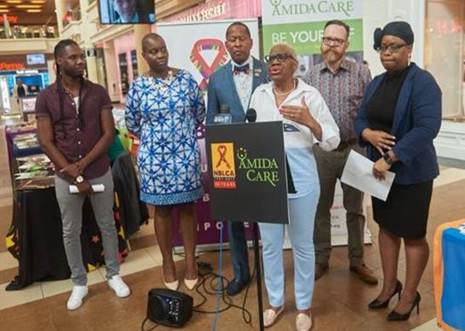|
Summer 2018 Policy Update
|
 |
|
Your VOTE is Your Voice: VOTE 2018
For so many reasons - from saving Medicaid to preserving basic human rights, particularly for people living with HIV/AIDS, women, LGBTQ people, and immigrants - there is an urgent need for each of us to make a special effort to vote this fall. In New York, there are two important election dates to keep in mind:
Thursday, September 13, Primary Elections:
On Thursday, September 13, the primary election will determine party candidates for the general election in November. This is your opportunity, as a declared party member, to select candidates for Governor, Attorney General, State Senator, and State Assembly Member.
Tuesday, November 6, General Election:
On Tuesday, November 6, New Yorkers will go to the polls to choose a U.S. Senator, Member of Congress, and New York State's Governor, Attorney General, Assembly Members, and Senators.
This election presents a critical moment for our state and the nation. Your vote is your voice, so be sure you're registered in your current name and address by no later than mid-October. Double-check the location of your polling place. Exercise your ultimate right as a U.S. citizen by voting on Election Day, November 6.
Need more information?

Also visit AIDS United's new
2018 Election Resource Center
to learn all about how you or your HIV service organization can make a difference this November.
|
 |
|
NYC Budget Updates
In June, the New York City Council, led by Speaker Corey Johnson, passed a Fiscal Year 2019 budget that reaffirmed the city's
commitment to Ending the Epidemic (ETE), the initiative to end the HIV/AIDS epidemic in New York State by 2020
.
Highlights of the budget include:

- Increased ETE funding by $650,000.
- Maintained ETE funding for existing programs including Amida Care's Innovator Workforce Initiative, which employs consumer workers at community providers.The project harnesses the skills and life experience of consumers and builds the capacity of community-based safety-net health care providers to hire consumers.
- 60 new shelter beds for LGBT homeless youth, with a $2.2 million increase in funding for youth homes.
|
 |
Federal Update: Help Stop the Trump Administration's Coordinated Attack on Medicaid

Access to care in the Medicaid population is suffering from a coordinated and sustained attack by the Trump administration. The administration's decisions could create overw
helming barriers to
health care for people living with serious and chronic conditions like HIV.
[1]
Work Requirements and Weakened Coverage: A Double Whammy
The administration is using a Medicaid waiver process, called the 1115 waiver, to make it harder for those who need Medicaid to sign up for it or keep it. At the same time, the administration has: cut funding for patient navigators who help people sign up for insurance; allowed the creation of short-term plans that offer little coverage; and
refused to uphold the law
under the Affordable Care Act that protects against discrimination based on pre-existing conditions, such as being a woman or living with HIV. The Center for Medicaid and Medicare Services (CMS) recently allowed states to submit applications that could change Medicaid to make eligibility for the program contingent on work requirements.
Cause for Concern:
- 60% of Medicaid recipients already work but cannot afford health insurance on their own, and those who aren't working can't. Making Medicaid contingent on work requirements would put health care coverage at risk, for those caring for a loved one or living with a chronic condition.
- Ten states have applied for waivers that include work requirements: Arizona, Arkansas, Indiana, Kansas, Kentucky, Maine, New Hampshire, North Carolina, Utah, and Wisconsin.
- CMS approved a waiver submitted by the state of Kentucky. The Kentucky waiver would establish work requirements, premium payments, cost-sharing, and a lockout for failure to pay. It ends retrospective eligibility and eliminates medical transportation that isn't for emergencies. The waiver was then stopped by a Federal judge, because the agency did not adequately consider the impact of the waiver on medical coverage.
- CMS also approved a waiver in Arkansas with Medicaid work requirements. This waiver is being implemented, and more than 7,000 low-income Arkansans are in danger of losing health care. Read more
[1]
The American Lung Association released a new policy brief, "
A Coordinated Attack: Reducing Access to Care in State Medicaid Programs
." The brief details how access to care in the Medicaid population is being undermined by a coordinated effort from the Administration and states through Medicaid 1115 Waivers. These waivers and their impact on patients could create insurmountable barriers to health care for people living with serious and chronic illnesses, such as lung cancer, chronic obstructive pulmonary disease (COPD) and asthma and result in hundreds of thousands of people losing their health care coverage.
|
 |
Take Action to Protect Medicaid: Medicaid is US
These drastic changes could jeopardize the health of millions of Americans who count on Medicaid for health insurance, including more than 400,000 people living with HIV. More than 74 million Americans rely on Medicaid; they are veterans, women, families with children, and people with chronic conditions like HIV and diabetes. Most people on Medicaid who aren't working can't work.
Work requirements target those with chronic health conditions or who are caring for a sick family member. The policy won't do anything to help them find a job. It just takes away their health care.
Without access to Medicaid, many have no choice but to visit the emergency room more frequently, face increased hospitalizations, require costly nursing homes, rack up higher medical bills, and get pushed into poverty. Those higher costs are ultimately passed on to the government, insurers, and taxpayers.
What can you do to prevent these drastic changes to Medicaid?
- Send a message to Congress telling them to oppose any federal attempt to cut Medicaid. Learn more at Medicaid is US: www.medicaidisus.org
- Call or visit your representative at their District Office. Tell them about how Medicaid has helped you or someone you know. Let them know that you are concerned about how the administration is changing Medicaid to decrease access to the program.
You can find your representative based on your zip code, or call 311 in New York City. Also check out the FamiliesUSA guide about how to set up a meeting with your member of Congress, and a resource tool kit for Speaking Up for Health Care.
- Submit public comments about Medicaid Work Requirements to the Department of Health and Human Services (HHS). HHS is seeking new public comments on Kentucky's proposal to implement work requirements as a condition for Medicaid eligibility. It is important that we ensure the public record reflects the harm that work-related and other restrictive measures can have on Medicaid enrollees. Comments are due by August 18, 2018 (11:00 pm EST), and can be submitted here.
For information about work requirements visit Health Care in Motion.
|
 |
|
Amida Care Serves Transgender Persons Regardless of HIV Status

As of November 1, 2017 New York State Medicaid Special Needs Plan (SNPs) opened to all transgender people who qualify, regardless
of their HIV status.
Amida Care advocated for this change, because we are committed to providing transgender people with access to respectful, high-quality, culturally competent health care, including gender-affirming services and HIV treatment and prevention.
In order to meet the goals of New York State's
ETE Blueprint, we need to reach every community affected b
y the HIV crisis. D
espite major advances in both treating and preventing HIV, transgender individuals still face an alarmingly high rate of new infections. Rampant stigma, discrimination, and socioeconomic challenges prevent the transgender community from accessing HIV prevention methods like PrEP and PEP, getting tested for HIV, and being linked to essential treatment and care. The prevalence of HIV among transgender women is nearly 50 times higher worldwide than the general population. For transgender women of color, this health disparity is even greater - from 2007 to 2011, 90 percent of transgender women in New York City diagnosed with HIV were black or Latina.
In the 6 months following the plan expansion, Amida Care served 524 transgender  individuals, an increase of 31%. Of the 125 HIV negative members who joined our plan since November 2017 20% were started on PrEP; 36% accessed Gender Affirming Surgery (GAS); and 60% reached out for more information about Gender Affirming Surgery. Overall, utilization of GAS by our transgender members increased from 20% in 2015 to over 40% today. individuals, an increase of 31%. Of the 125 HIV negative members who joined our plan since November 2017 20% were started on PrEP; 36% accessed Gender Affirming Surgery (GAS); and 60% reached out for more information about Gender Affirming Surgery. Overall, utilization of GAS by our transgender members increased from 20% in 2015 to over 40% today. Amida Care is committed to helping people of transgender experience access the care they need to be healthy and live their authentic lives. Amida Care is now advocating with New York State to change HSNP eligibility to allow all men who have sex with men (MSM) and other populations at high risk of HIV acquisition to enroll in our plan, regardless of HIV status.
|
 |
Amida Care in the News
On National African American Hepatitis C Action Day on July 25, Amida Care, the National Black Leadership Commission on AIDS, Inc. (NBLCA), New York City Council Member Andy King, and Deputy Bronx Borough President Marricka Scott-McFadden partnered with advocates, other local leaders, and health care providers at The Mall at Bay Plaza to encourage Bronx residents to get screened for Hepatitis C. Throughout the day, representatives from NBLCA and Brightpoint Health provided free Hepatitis C and HIV screenings, and information was distributed to the public about liver health. Hepatitis C is a silent epidemic that affects 150,000 New Yorkers and deeply impacts the Afri
can American community; two of the four New York neighborhoods with the highest rates of newly reported Hep C cases are in the Bronx.

Amida Care's VP of Member Experience and Ombudsperson, Stephane Howze, and an Amida Care member who has been treated and cured of Hep C, Jackie Johnson, made remarks at the press conference on the 25th, which was covered by the Bronx Voice, My Social Good News, New York Amsterdam News, Spectrum News NY1, and News 12 Bronx. Amida Care's VP of Pharmacy, Terry Leach, and other members of Amida Care's pharmacy team were interviewed by NBLCA CEO C. Virginia Fields on Manhattan Neighborhood Network's Health Action TV on July 23, in advance of the July 25 Hepatitis C Action Day event.
 Amida Care is advocating with New York State to change HSNP eligibility to allow Amida Care is advocating with New York State to change HSNP eligibility to allow
all men who have sex with men and other populations
at high risk of HIV acquisition to enroll in our plan, regardless of HIV status. This news was covered by POLITICO New York on July 17. Amida Care's President and CEO Doug Wirth also appeared on the Spectrum News NY1 show "Capital Tonight" on August 1 to discuss the importance of providing culturally competent health care to populations at higher risk for HIV acquisition.
|
|
|
|
|